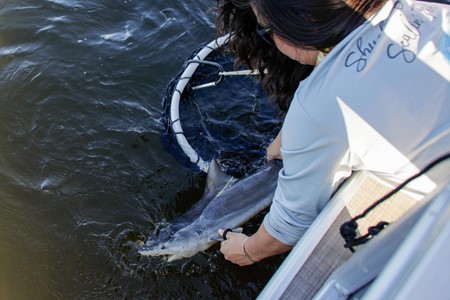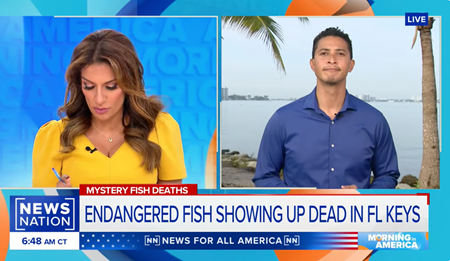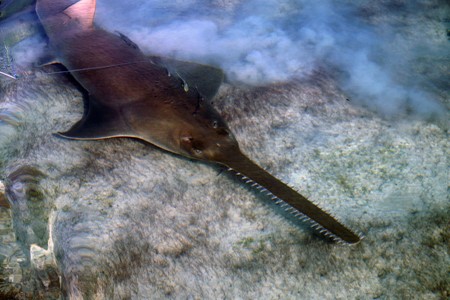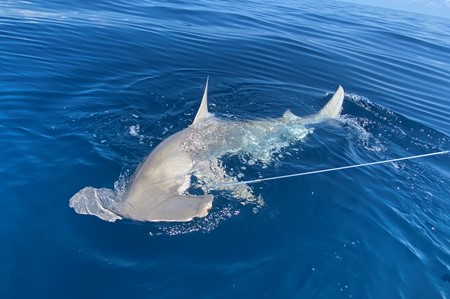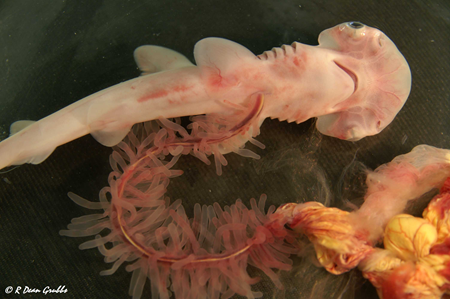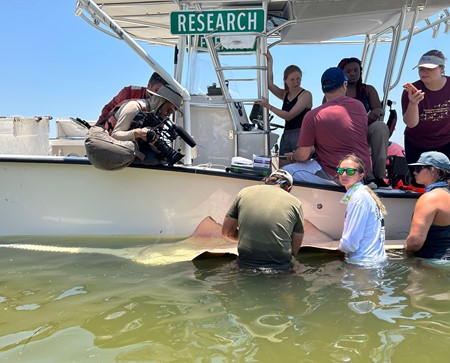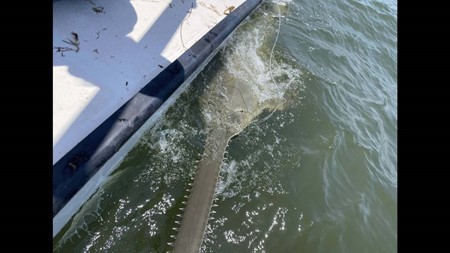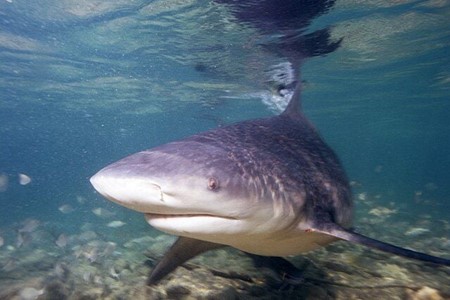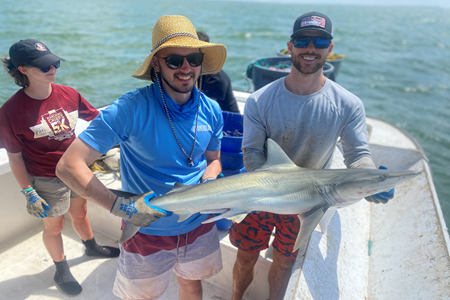Andres and her team of researchers on the newly minted Crystal River Bull Shark Project started fishing for sharks in August and began tracking their movements two months later. Since the team began, they have caught 27 baby bulls and are monitoring 10 of them with special acoustic tags that map where in the river a shark has traveled.
Scientists rush to find cause of sawfish deaths off Florida Keys
There have been more than 50 sightings of sick or dead sawfish in the Lower Keys since November, according to the Florida Wildlife Commission. Despite ongoing efforts, researchers have yet to determine the cause but are actively testing the animals and collecting samples. #FloridaKeys #sawfish #research


